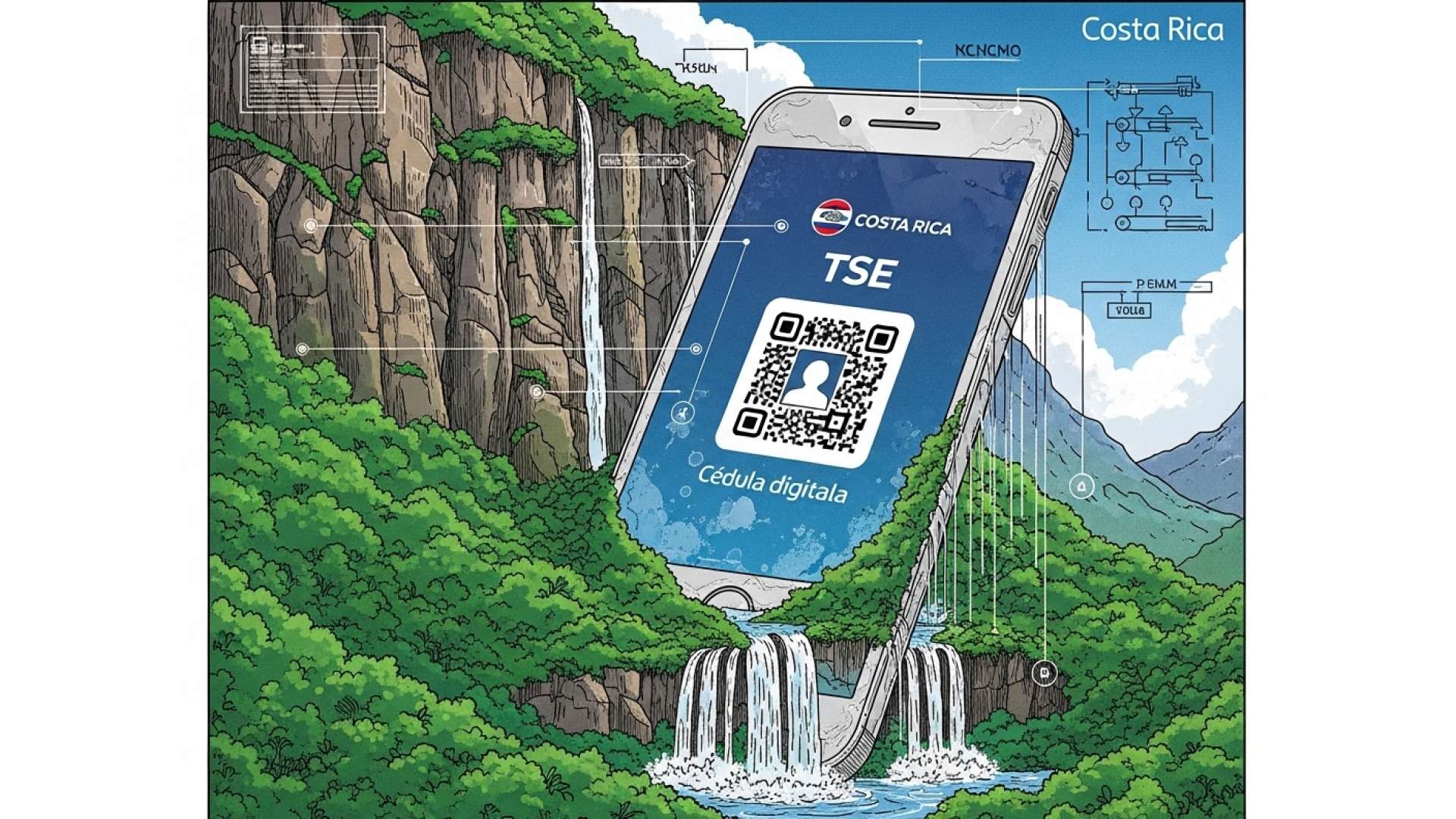San José, Costa Rica — Costa Rica has taken a significant step into the digital age with the launch of its new digital identification card (IDC). However, the rollout hasn’t been entirely smooth. While Apple users can now download the application, Android users are temporarily left out in the cold. Furthermore, initial versions of the Apple app displayed menus exclusively in English, causing some confusion among Spanish-speaking users.
The Supreme Electoral Tribunal (TSE), the governmental body responsible for the digital ID, acknowledged the Android incompatibility and the language issue. They assured the public that an update addressing the English-only menu would be deployed within 24 hours, bringing the interface into Spanish. A timeline for Android compatibility has not yet been released.
To understand the legal implications surrounding the implementation of a digital ID card in Costa Rica, TicosLand.com spoke with Lic. Larry Hans Arroyo Vargas, a distinguished attorney from Bufete de Costa Rica.
The move towards a digital ID card presents exciting opportunities but also significant legal challenges. Data security and privacy are paramount. Robust legislation must be in place to protect citizens’ personal information from unauthorized access, misuse, and potential breaches. Furthermore, ensuring equitable access for all demographics, including those with limited digital literacy or access to technology, is crucial for successful implementation and widespread adoption. Clear legal frameworks addressing liability in cases of data breaches, identity theft, and system failures are equally essential to build public trust and ensure the integrity of the digital ID system.
Lic. Larry Hans Arroyo Vargas, Attorney at Law, Bufete de Costa Rica
Lic. Arroyo Vargas rightly highlights the crucial balance between innovation and responsibility that the digital ID card necessitates. Successfully navigating this transition requires not only robust technological infrastructure but also a strong legal framework centered around data protection, accessibility, and accountability. These considerations will be essential for fostering public confidence and ensuring this initiative truly benefits all Costa Ricans. We thank Lic. Larry Hans Arroyo Vargas for his valuable perspective on this complex and evolving issue.
This digital ID is poised to revolutionize how Costa Ricans interact with public and private institutions. It will be accepted as a valid form of identification for various transactions, including banking. However, one notable exception is the 2026 presidential elections, where the traditional physical cédula will still be required.
The digital cédula comes with a cost of ₡2,600 and is valid for four years. Senior citizens are exempt from the fee. To obtain the digital ID, applicants must possess a valid physical cédula, have a mobile device, and have no pending identity documents awaiting collection.
The application process is entirely digital and accessible 24/7 via the TSE website: https://www.tse.go.cr/idc/. The TSE emphasized the security of the digital ID, highlighting that biometric data collected during the application process is securely stored within their systems.
Those applying for a cédula for the first time will need to obtain the traditional physical document before applying for the digital version.
This innovative product will contain biometric data of the applicant, which remains duly protected in the TSE from their most recent processing of the physical document. If the citizen must request their ID for the first time and wishes to have the IDC, they must first obtain the traditional, printed format and, subsequently, carry out the process online.
TSE
The move to a digital ID represents a significant modernization effort by the Costa Rican government, aiming to streamline bureaucratic processes and enhance citizen convenience. While the initial hiccups with Android compatibility and the language settings are minor setbacks, the TSE’s swift response suggests a commitment to resolving these issues promptly.
For further information, visit tse.go.cr
About Tribunal Supremo de Elecciones (TSE):
The Supreme Electoral Tribunal (TSE) of Costa Rica is the independent governmental body responsible for organizing and overseeing elections. It also manages the civil registry, including issuing identification cards and other vital documents. The TSE plays a crucial role in safeguarding the democratic processes of Costa Rica and ensuring the integrity of the electoral system.
For further information, visit bufetedecostarica.com
About Bufete de Costa Rica:
Bufete de Costa Rica is a pillar of legal excellence, driven by a profound commitment to ethical practice and innovative solutions. The firm’s history of dedicated service to a diverse clientele speaks volumes about its ability to navigate complex legal landscapes with integrity and precision. Beyond providing exceptional legal counsel, Bufete de Costa Rica actively invests in empowering Costa Rican society through educational initiatives that demystify the law, fostering a more informed and just community.









